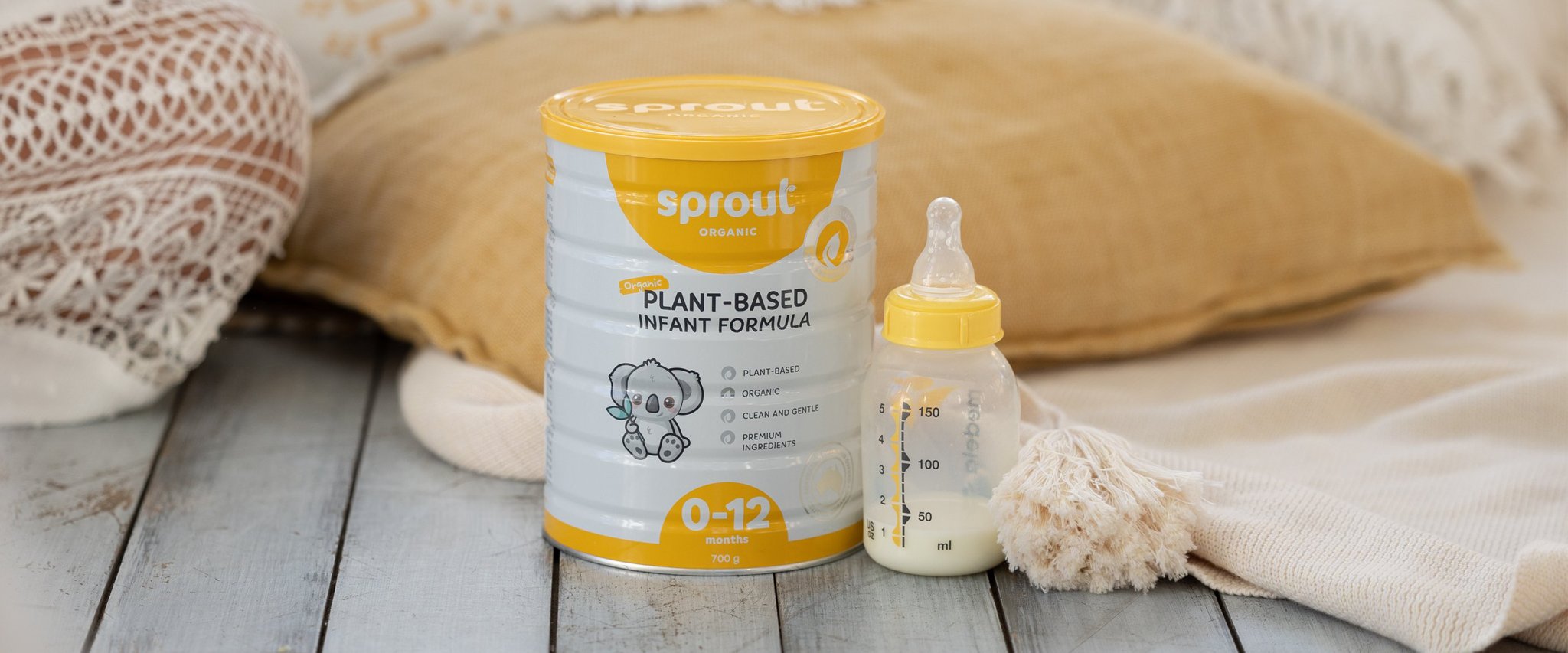Breastfeeding
At Sprout Organic, we believe that breast milk is always best, however we also understand that breastfeeding is not always possible or the informed personal choice of all mothers, and in these circumstances formula is the only safe alternative.
Breast milk is unequivocally the best source of nutrition for infants due to its unique benefits. However, when an infant cannot receive breast milk the only suitable and safe alternative is a scientifically-developed infant formula product which satisfies the nutritional requirements of infants up to 6 months of age as a sole source of nutrition.
Sprout Organic recognises and supports:
- The right of every infant to be adequately nourished as critical to attaining and maintaining health.
- That breastfeeding is an unequalled way of providing the ideal food for the healthy growth and development of infants.
- That breastfeeding provides valuable short and long-term health benefits for infants and mothers.
- That breastfeeding should be protected, promoted and encouraged.
- The right of women to breastfeed or formula feed without discrimination, noting that it is unlawful to treat a woman less favourably on the basis that she is breastfeeding or formula feeding under anti-discrimination laws (such as the Australia Federal Sex Discrimination Act 1984 and the NZ Human Rights Commission Act 1977 and Employment Relations Act 2000).
- The right of all mothers and caregivers to choose how to feed their child and their right to freely make that choice without the prejudice of others.
Sprout Organic also recognises the need for legislative change in Australia to help mothers and caregivers make informed choices, and strongly opposes the alienation and bullying of mothers who have made the personal or medically required choice to feed their child formula.
Due to labelling restrictions on infant formula in Australia, labels on infant formula products do not provide sufficient information. A significant proportion of mothers or carers who use infant formula say they do not receive enough information to help them decide which product is suitable for their child's dietary needs:
- 1 in 3 feels they received insufficient information when buying formula the first time (e.g. nutrients) in the formula they buy.
- Only 3% find product labelling to be the most useful source of information
- Lack of information on product labels means that mothers are not able to differentiate between products to find the most suitable products for their infants and can resort to creating unsafe, at-home recipes.
Informed choices are critical
Not all infant formula products are the same. Carers who need to use infant formula should be able to make informed choices about the infant formula product they buy. On-pack information must be improved to contain more information about ingredients to enable mothers to tell products apart. The inclusion of such information is compatible with the International Code of Marketing of Breast-milk Substitutes (WHO Code) and its local interpretations. In other developed countries, such as Canada, the United States and Singapore, infant formula packaging can display information such as Omega 3 DHA, which helps support brain and eye development which enables parents to understand differences between brands and different products in a brand range. However, in Australia and New Zealand, including this information on packaging is currently prohibited.
Research into the behaviour and needs of Australian mothers shows that:
- 93% of mothers want to be kept informed of any changes in the composition of formula
- More information is needed on ingredients and nutritional composition.
Food Standards Australia New Zealand (FSANZ) is in the process of reviewing Standard 2.9.1 Infant Formula Products. Sprout Organic, as a member of the Infant Nutrition Council proposes that this review includes improvements to existing labelling issues that can address the current lack of information on packaging available to parents and carers.
1 Jigsaw Research ‘Informed choices for consumers’ survey with n=501 Australian mothers who use infant formula (2015).
2 Qualitative Research on Information Sources and Practices-Preparation of Powdered Infant Formula in New Zealand (2008).





